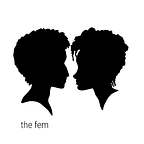Noël Duan on “Dietland” by Sarai Walker
“Chick lit” is a genre of popular fiction, written by women about women, that has unfortunately been treated with condescension and disdain in traditional literary circles. Bestselling author Jennifer Weiner once told The New Yorker, “I could write the Odyssey and people would say, ‘Chick lit in Greece.’ ”
It’s because women’s tastes are not considered to be serious.
Not surprisingly, women authors who want to be taken seriously in the literary canon tend to veer away from the plot and character tropes found in chick lit franchises — it’s not because chick lit, oftentimes nuanced social commentary on women navigating success and love in certain socioeconomic levels, is not serious. It’s because women’s tastes are not considered to be serious.
Sarai Walker’s debut novel, Dietland, written partly while she was finishing her PhD in London, contains the typical tropes of chick lit: The protagonist is a 20-something magazine writer named Plum Kettle. Yes, as the title of the book suggests she’d like to lose weight and is preoccupied with the pursuit, convinced that her “real life” will begin once she becomes thin. The cover art features a cupcake — with sprinkles! How Sex and the City. And yes, you guessed it again — the story is set in New York City.
But unlike most books about young professional women in urban settings, Plum doesn’t become svelte and Amazonian at the end of the novel, guaranteeing eternal happily ever after as long as she keeps her weight off. Plum remains 300 pounds and she doesn’t get engaged.
Plum lives a quiet life of invisibility and Waist Watchers pre-packaged meals while replying to emails to teenage girls on behalf of the editrix of a glossy teen magazine. Her professional life is dedicated to pretending to be someone else — in this case, a glamorous publishing executive we’re accustomed to reading about in chick lit. Every day, Plum goes between her apartment and a nearby café shop. “My life had narrow parameters, which is how I preferred it. I saw myself as an outline then, waiting to be filled in,” she narrates.
If chick lit is rooted in the supposed feminine proclivities for shopping and finding one’s Prince Charming, Dietland’s revenge fantasy about misogyny bares parallels to Fannie Flagg’s 1987 Fried Green Tomatoes at the Whistle Stop Café.
So instead of falling in love with a handsome trustafarian or moving to Paris, Plum gets pulled into a guerilla collective of radical feminist women called Calliope House who are fighting everyday and institutional misogyny. There is a terrorist organization only known as “Jennifer” that commits acts of violence like burning down a frat house that chanted “No means yes, Yes means anal” (the chanting, not the burning, actually happened at Yale in Fall 2010) and dropping rapists from helicopters. It is a revenge fantasy about misogyny.
If chick lit is rooted in the supposed feminine proclivities for shopping and finding one’s Prince Charming, Dietland’s revenge fantasy about misogyny bares parallels to Fannie Flagg’s 1987 Fried Green Tomatoes at the Whistle Stop Café — specifically in the character of Evelyn Couch, who also dreams of losing weight and struggles with self-esteem. Evelyn develops a secret alter ego, Towanda the Avenger, who poked “child molesters with electric cattle prods until their hair stood on end, “placed tiny bombs inside Playboy and Penthouse magazines that would explode when they were opened,” and fired “all models weighing under 135” pounds.
Flagg describes Towanda as someone with the strength of 10 men — by changing her body to one that is more masculine in physicality, Evelyn is able to realize her anger. “Women so often turn their anger inward instead of outward,” Walker notes. She was inspired by the film Fight Club to create the guerilla group in Dietland. “I felt that men are allowed to show anger and be angry or even be violent, whereas women aren’t really allowed that,” she says. But since the book was published last year, readers have emailed Walker about the “shocking” violence in the book. “I think women heading violence makes people uncomfortable,” she says. “A guy gets shot in the head on network television at 7pm. But people think my book is shocking.”
It was recently announced that UnREAL co-creator Marti Nixon will be developing Dietland into a television series, and Walker is excited to see how the show — full of actresses in shapes and sizes not deemed “fuckable” in everyday society — will be received. “The experience of being fat is just as varied as being a woman,” she notes.
Above all, [women] must be fuckable.
In the novel, Plum is tasked to going on a week of blind dates set up by Verena Baptist, the daughter of the founder of Waist Watchers who now runs Calliope House and is trying to make up for the damage caused by her family’s diet plan empire. A series of educated, professional men — a financial analyst, a literature professor at NYU, a guy who is blind, and a “human rights lawyer and drinker of fair-trade coffee” — pick Plum up at her door. Their reactions range from “You’ve got to be kidding” to “You’re not my type.” It is through the averse reaction to Plum’s body that we see how men, even “liberal enlightened men” as Walker describes them, still see women: above all, they must be fuckable.
“Beauty is often treated as an essentially feminine subject, something trivial and frivolous that women are excessively concerned with,” wrote Adelle Waldman in The New Yorker while contemplating why her “sensitive and intelligent” non-meathead male friends only date very beautiful women. “Men, meanwhile, are typically seen as having a straightforward and uncomplicated relationship with [beauty]: they are drawn to it.” Dietland forces readers — yes, even “woke” ones — to confront their internal biases about the female body, and it’s not afraid to be angry about it.
